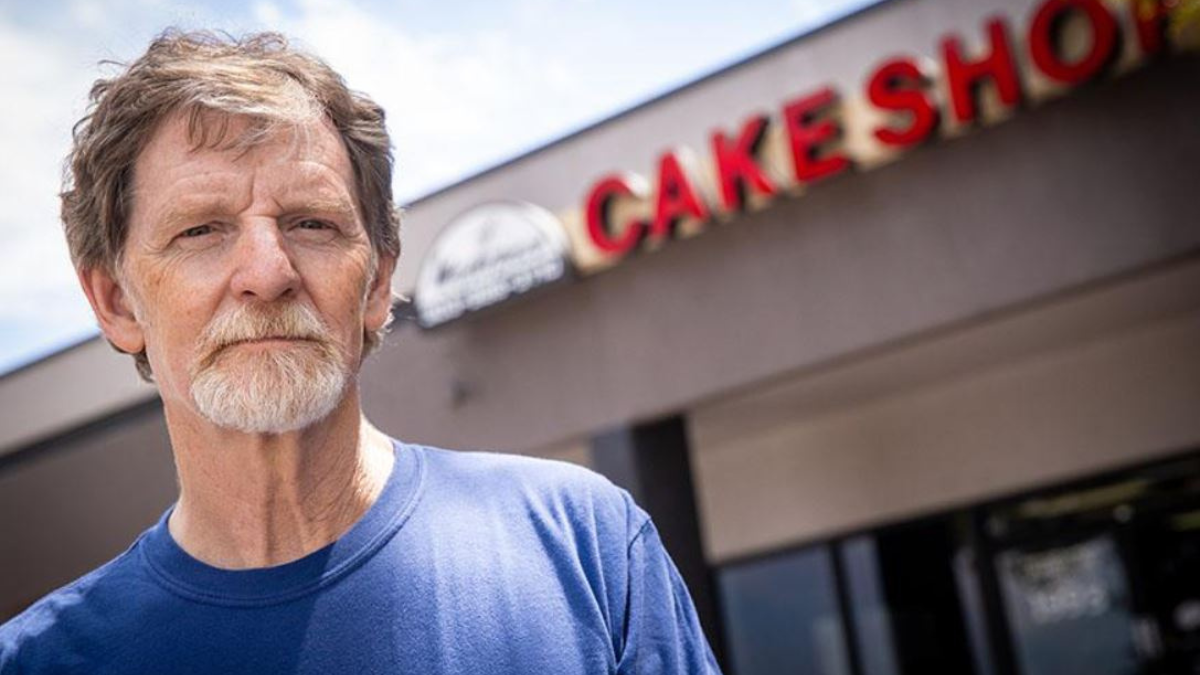

Jack Phillips and Lydia Booth: Updates on their Stories of Courage
Jack Phillips and Lydia Booth are like living epistles to us, offering a picture of what faithfulness to Christ could require in the days to come.
02/1/23
John Stonestreet

Leaders of the early Church, both the Apostles and their disciples, wrote letters to churches facing difficult challenges. These epistles were to encourage and instruct, shoring up new believers against internal conflicts or creeping heresies and increasing persecution.
I think of these letters whenever I think about what Jack Phillips has faced for over a decade now. After being harassed, mistreated, and maligned by Colorado’s Civil Rights Commission for not baking a cake for a same-sex wedding at a time when same-sex marriages did not exist in the state, Jack’s been targeted for harassment by a Denver lawyer for refusing to bake a cake celebrating gender confusion. Fearful that they would, once again, be smacked down by the Supreme Court for how they treated Jack, the state of Colorado had initially dropped their second case against Jack, based on a complaint filed by a man who presents as a woman. Early on, the transgender activist stated that he would not stop harassing Jack until either his (Jack’s) beliefs changed or Masterpiece Cakeshop was put out of business.
A Colorado judge then allowed a civil case to proceed and, last week, the Colorado Court of Appeals ruled against Jack Phillips and for the Denver lawyer, claiming that designing a cake to celebrate so-called gender change does not constitute speech. Jack, still represented by the Alliance Defending Freedom, will appeal, and the case is likely headed back to the Supreme Court.
To be a Christian and to hold to Christian conviction about what is true about the nature and person of Jesus Christ, about human nature, and about the place of Christian conviction in the public square is to be more than out of step with the larger culture. It’s to be potentially at risk to some degree, something that Christians have faced since the beginning of the Church. It may very well be that we, too, will be forced to choose between our wellbeing in some sense and our convictions.
What Jack and his family have been put through for years now is not merely an indicator of where our culture has gone but, even more importantly, a lesson for how Christians must learn to think about this cultural moment, the courage Christians must cultivate, the choices Christians could face, and the faith Christians must place in God. What happens, ultimately, is up to Him.
This week, after two years of legal proceedings, the Simpson County School District in Mississippi reached a settlement with Lydia Booth, now 11 years old. As told two years ago on the Strong Women podcast, Lydia got in trouble for wearing a “Jesus loves me” mask to school. Here’s Lydia’s mother recounting what happened [edited for brevity]:
The principal called to tell me that Lydia needed to change her mask. She told me the students couldn’t wear political or religious masks. I was shocked. I had read the school handbook and there was no such rule.
I contacted the assistant superintendent. Even he verified that at that point it was not in the handbook. He told me that it was in a school restart plan document. Then he emailed me a copy of it. I went on the district webpage, and although the district didn’t realize it, the original document was still archived on their website. When I pulled it up, I found that I was looking at two versions of the restart plan: the one that he had emailed me, and the one that had been released by the district at the beginning of the school year. The only difference between those two versions was the verbiage about the types of masks that were to be worn. I pulled the metadata on the emailed document. It showed that the superintendent had modified the document thirty minutes before he called me.
When something wrong like this occurs and you just allow it, it goes that little things like these add up over time. This year it’s the mask. Next year it will be T-shirts. At some point we won’t even be able to say Jesus’ name in school. Eventually my grandkids and great grandkids won’t be able to do what they’re called to do as Christians: to share the Gospel and say Jesus’ name in public.
During the two-year ordeal, Lydia learned that her stand had inspired others, including two sisters from another state to share Christ with a friend, and one of her own classmates to read the Bible. And, of course, the issue of faith expressions in public schools has been clarified for parents, students, teachers, and overly zealous administrators.
Lydia, whose ordeal is over, and Jack, whose ordeal is not, are like living epistles to us, offering a picture of what faithfulness to Christ could require in the days to come.
For more resources to live like a Christian in this cultural moment, go to colsoncenter.org.
Topics
Alliance Defending Freedom
Freedom of Expression
freedom of speech and religion
Jack Phillips
Lydia Booth
Masterpiece Cakeshop
U.S. Supreme Court
Have a Follow-up Question?
Related Content

© Copyright 2020, All Rights Reserved.














